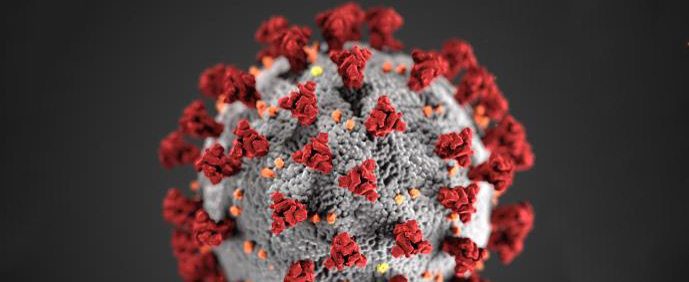Move Well, Move Often – It May Save Your Life
Move well and move often: it’s smart advice for maintaining a strong, healthy body from head-to-toe, inside and out. With mounting evidence of the ill-effects associated with sitting too much, moving well has become essential for living well.
The way your body moves (functions) is in direct relation to its form (structure) and vice versa. To get a better understanding of this relationship, let’s talk cars…
Imagine you drive a beat-up VW Bug. Your little Bug isn’t designed to accelerate quickly. It doesn’t handle turns with finesse. The way your VW Bug moves is dictated by its structure. Now, let’s put you in a Porsche. You can cruise in and out of traffic with the smoothness of silk. This car handles turns better than a rollercoaster. It accelerates like a rocket and can practically stop on a dime. But if you don’t perform routine maintenance, all that beautiful form is for naught and your Porsche no longer functions well. Form determines function and how well you care for function affects form. Now, back to your body…
 Our body’s innate intelligence creates movement patterns that are in dynamic play between form and function, influenced by the type of care we give our body. This complex interaction includes the skeleton, connective tissues like ligaments and tendons, muscles, joints, our breathing, heart function and posture.
Our body’s innate intelligence creates movement patterns that are in dynamic play between form and function, influenced by the type of care we give our body. This complex interaction includes the skeleton, connective tissues like ligaments and tendons, muscles, joints, our breathing, heart function and posture.
Sitting is Killing Us
We sit about 14 hours a day: at meals, in traffic, at school or work, in front of devices and TVs. Prolonged sitting can increase our risk for obesity, diabetes, heart disease, and cancer. It’s a primary culprit in these health problems:
Chronic back, hip and neck pain: related to weakened core muscles and shortened ligaments connecting the hips and thighs.
Shallow breathing (reduced respiratory capacity): related to compression of the respiratory muscles while sitting and tightness in the accessory muscles around the rib cage, shoulders and neck.
Gastrointestinal issues and indigestion: related to reduced circulation to the gut.
Low energy level, depressed mood: related to lack of engagement of systems that produce hormones and other substances that elevate mood.
But, I go to the gym…
Even if you exercise at a gym, or fitness walk for an hour each day, you’re still sitting too much for that one hour to make a real difference. Leisurely, periodic movement is critical to lowering your risk for chronic health problems and even early death. Some ideas:
- Every 30 minutes, stand/walk for about 10 minutes.
- Stand while talking on the phone, using a device, or watching television.
- Desk worker: Try a standing desk or improvise with a high table or counter; invest in a specialized treadmill desk.
- Sit on an exercise ball at your desk for part of the day or while watching TV.
- Walk with colleagues for meetings instead of sitting in a conference room.
- Once an hour, stand and breathe deeply for five minutes.
- Strengthen and stretch with standing yoga poses.
- Try apps designed to remind you to move and stretch during work hours.
Enjoy the benefits of getting up and moving, which include . . .
- Burning additional calories, which can lead to weight loss and increased energy.
- Better digestion, the result of light movement after meals.
- Support for the respiratory system’s role in helping the body remove waste and toxins; movement gives the muscles “room to breathe” placing less stress on joints, muscle and ligaments.
If you have chronic pain or other problems associated with too much sitting, make an appointment with a holistic health provider, such as a chiropractor or physical therapist, who can perform a thorough postural and biomechanical assessment.
[hr]
Your Body, On Water
Athletic or not, we all need water. And plenty of it. Hydration affects how our body works in daily activities, how prone it is to injury, and how well it recovers from injury.
Water facilitates hundreds of critical functions in the body, many of which are essential for maintaining good muscle tone, joint mobility, and even managing pain. Specific to the musculoskeletal system, water helps:
- transport nutrients and oxygen in the bloodstream (which muscles need to properly contract and recover).
- flush out waste and toxins (which plays a role in reducing muscle soreness).
- lubricate and reduce friction in the joints.
- facilitate muscle contraction.
Dehydrated muscles and joints are prone to:
- Cramps: resulting from imbalances in the electrolytes needed for muscle contraction.
- Cartilage wear and tear: joints aren’t receiving nutrients needed for maintenance and repair after injury.
- Friction in the joints: dehydration can deprive your cartilage of the water it needs to maintain cushion, which can lead to achy or “creaking” joints and osteoarthritis (OA).
- Pain: dehydrated muscle tissue can’t flush out waste products or toxins that build up from exertion, injury or other stress.
Are You Dehydrated?
Dehydration means your body lacks the water required to function. You can become dehydrated if you don’t replace fluids lost through exercise, from exposure to the elements, or from vomiting/diarrhea. Excessive caffeine consumption leads to dehydration.
Your daily water requirement depends on age, gender, activity level, body composition, health status, and climate. The color of your urine isn’t an accurate guide since certain foods, supplements, and medications change urine color. To ensure sufficient water intake, drink one-half (1/2) of your body weight in ounces. Example: If you weigh 130 pounds, drink 65 ounces of water each day.
Dehydration can quickly become a life-threatening emergency. Signs include:
Mild Dehydration: dry mouth, irritability, headaches and muscle cramps.
Moderate Dehydration: dizziness, clumsy, exhausted, racing heartbeat. You may be unable to urinate, stand, or focus your eyes.
Severe Dehydration: the function of vital organs is impaired. Without water, you will enter a coma and die.
Put Down those Sugary Sports Drinks. Here are Sweeter Ways to Get Hydrated
- Go Coconut. Coconut water is rich in natural electrolytes. While not scientifically proven, theoretically it can boost hydration and you may enjoy the flavor more than plain water.
- Infuse It! Add fresh or frozen slices of orange, lemon, or lime to your water. Try frozen berries or melon; also try cucumber, mint, ginger or parsley.
- Get Fizzy. Bubbly (carbonated) spring water hits the spot on a hot day. Choose varieties without added sweetener.
- Have an Herbal. Iced or hot, caffeine-free and herbal teas count toward your water intake and support healthy hydration.
- Fruit & Veg Up! Many fruits and veggies have a high water and nutrient content: cantaloupe, honeydew, strawberries, watermelon, pineapple, peaches, cucumber, lettuce and celery.
[hr]
Glucosamine, Chondroitin Sulfate & MSM for Joint Pain
Glucosamine sulfate and chondroitin are structural components of cartilage, the tough tissue that cushions joints. Both are produced naturally in the body and are available as dietary supplements. Since production and structure of cartilage decline with age, it is thought that boosting the availability of glucosamine and chondroitin may play a role in managing the symptoms of osteoarthritis, which destroys cartilage in the joints, causing inflammation and pain.
Another supplement often recommended for joint and bone health, and which also fights inflammation, is MSM (Methylsulfonylmethane). MSM is a highly bioavailable form of sulfur that is easy for the body to absorb. For people who have difficulty tolerating glucosamine, MSM is an excellent option. It should be used in combination with glucosamine, or where medically necessary, with chondroitin as well.
These supplements are most often used in combination. Short-term studies have shown good results for people with moderate arthritis, but more long-term studies are needed. A number of other studies looking at pain reduction are being conducted both in the US and abroad. Results currently indicate that it may help some people and not others.
Be aware that glucosamine sulfate and chondroitin are derived from shellfish and should not be taken if you are allergic to shellfish. Vegan forms of the supplements are also available. If you take a medicine called warfarin, you should not use glucosamine and chondroitin. Additionally, there are many forms of glucosamine – only glucosamine sulfate has been studied for arthritis treatment. Speak with Dr. Fenske about whether these supplements are an appropriate option for you.
[hr]
Guiding Principles




